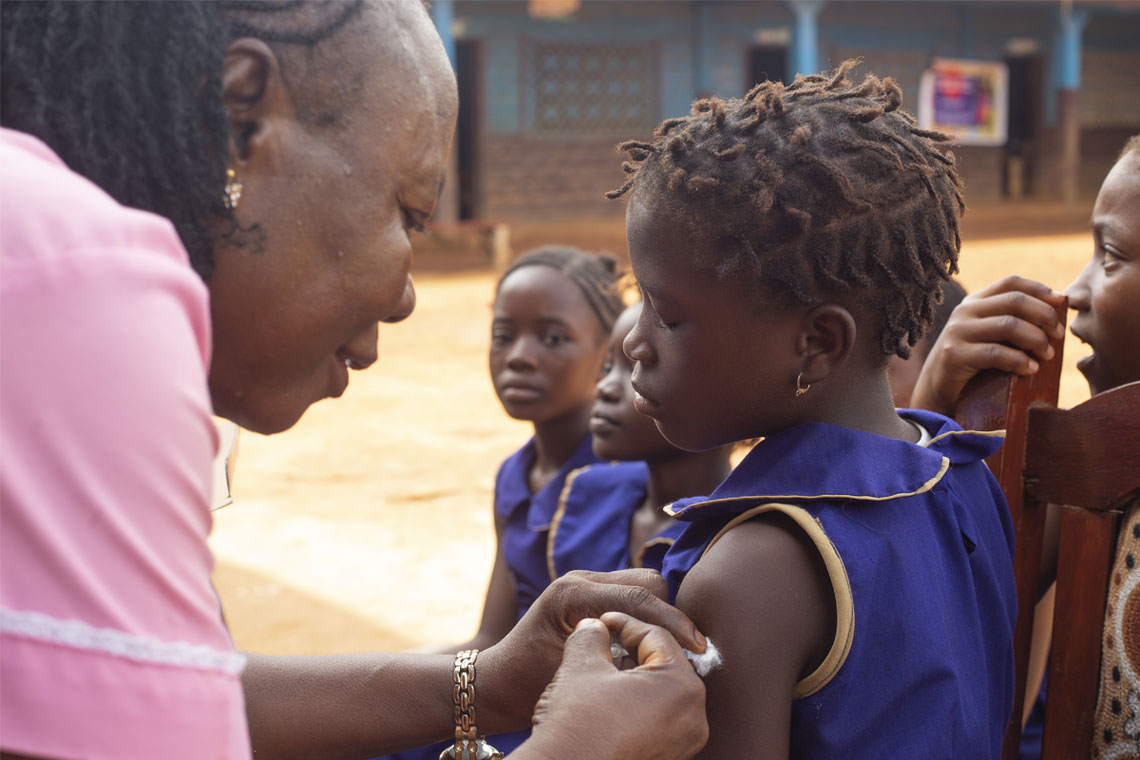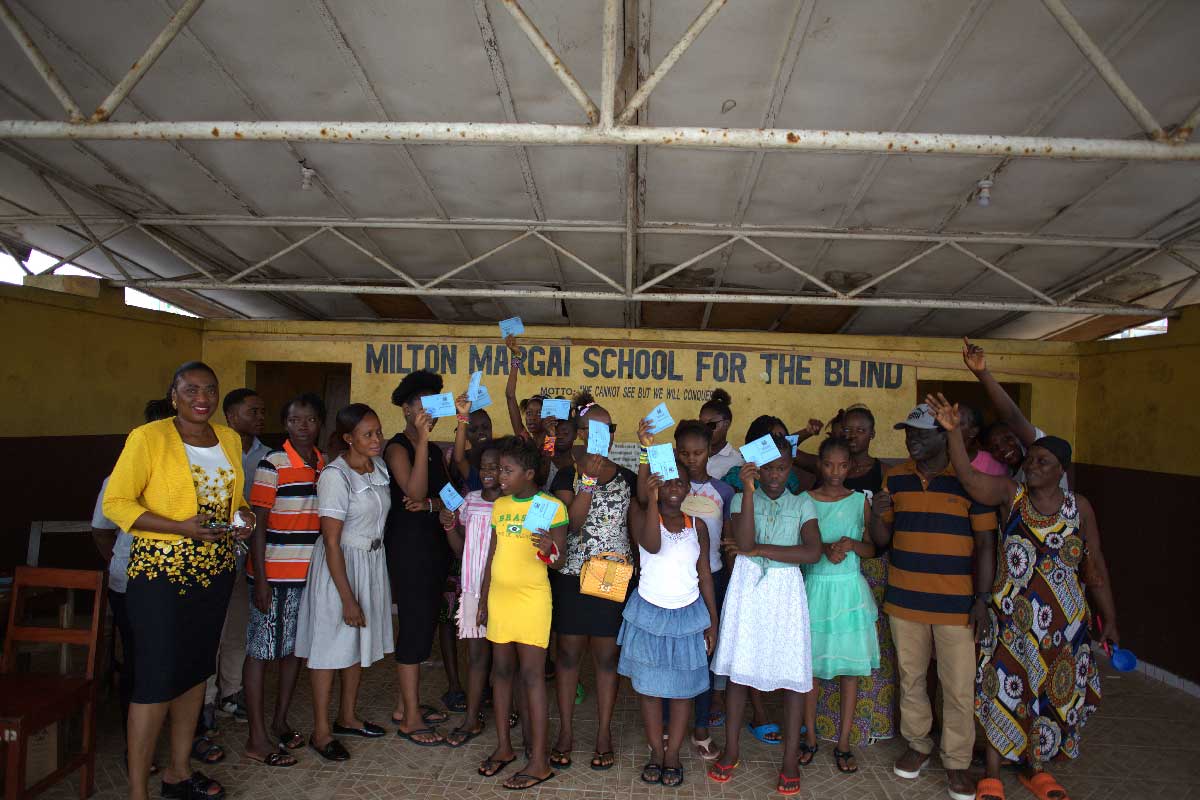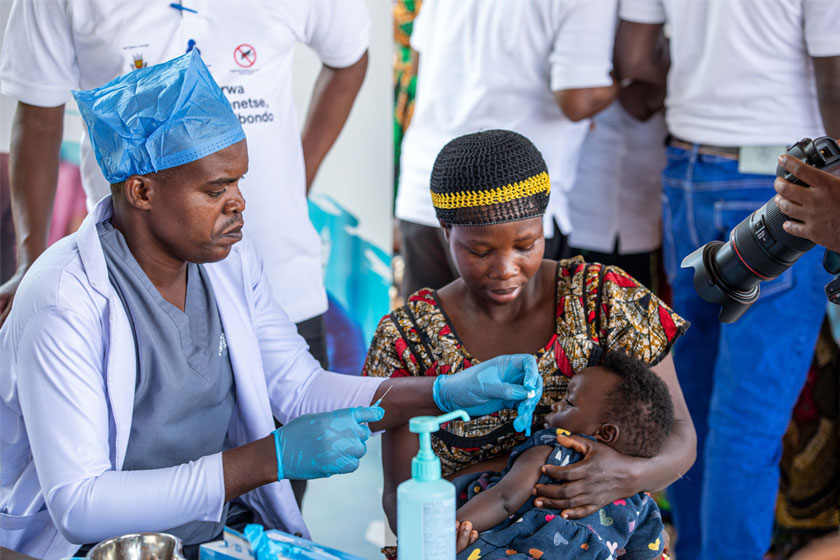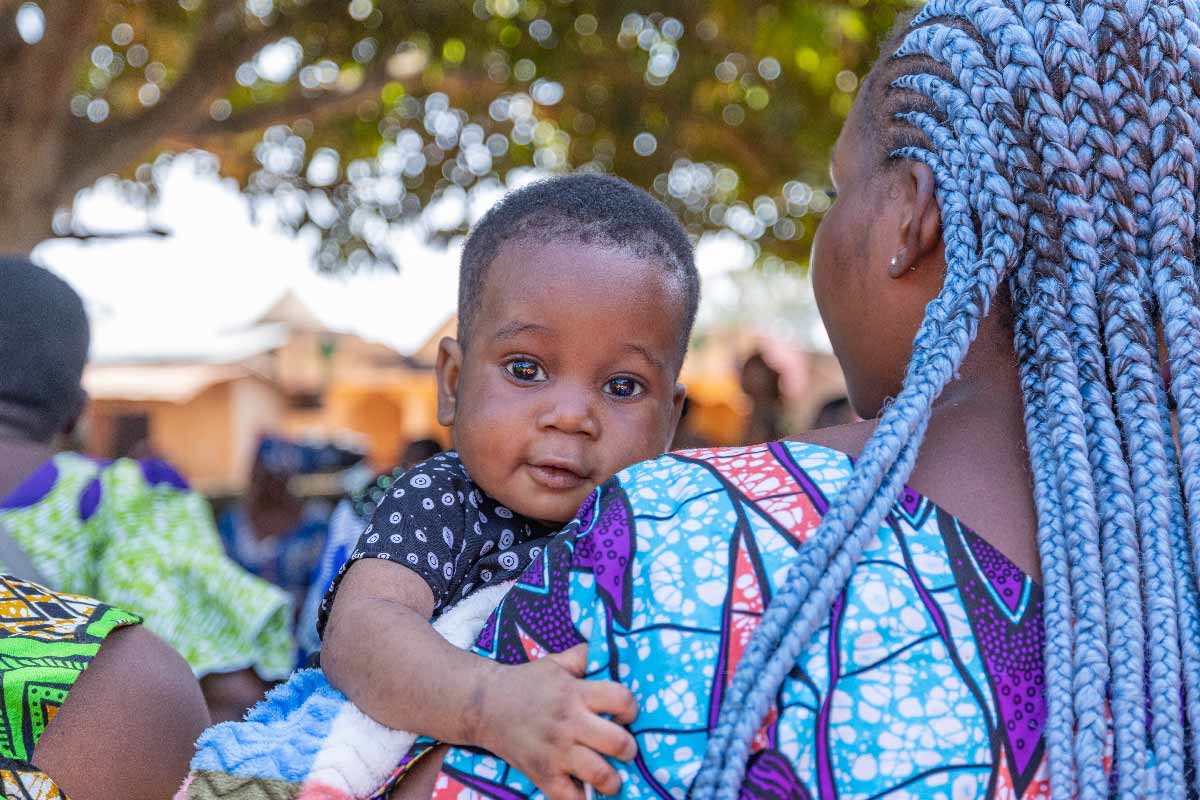From Advance Market Commitments to Day Zero Financing: an A-to-Z of Gavi’s financial tools
Through innovative financing, Gavi seeks to deliver “more money for health, and more health for the money”.
- 10 June 2025
- 6 min read
- by Gavi Staff

When it comes to protecting children from deadly diseases, vaccines are only part of the story.
Behind the scenes, Gavi, the Vaccine Alliance uses a mixture of clever financial tools and groundbreaking partnerships to stretch every dollar to reach more children and help countries to build strong and self-sufficient immunisation programmes.
Frontloading allows Gavi to rapidly scale up immunisation programmes without waiting for donor funds to be dispersed over many years, enabling the rapid deployment of vaccines where timely intervention is critical.
Complicated as these financial mechanisms might sound, they serve a simple purpose: to make vaccines more affordable and accessible to everyone who needs them.
Here’s a basic introduction to how these tools work, and the difference they’ve made so far.
International Finance Facility for Immunisation (IFFIm)
Even before Gavi was launched, it was clear that delays in the delivery of pledged funding made it challenging to respond to urgent health needs.
The idea behind the International Finance Facility for Immunisation (IFFIm) was to transform long-term donor pledges into immediate funding by issuing ‘Vaccine Bonds‘ on international capital markets: a kind of ‘IOU’ that investors buy and receive interest on, whilst helping to save lives.
Launched in 2006, this innovative financing approach, known as ‘frontloading’, allows Gavi to rapidly scale up immunisation programmes without waiting for donor funds to be disbursed over many years – enabling the rapid deployment of vaccines where timely intervention is critical.
As of 2024, IFFIm had contributed US$ 6.2 billion to bolster Gavi’s vaccination programmes, representing 16% of Gavi’s overall funding. Indeed, of the total 1.1 billion children immunised with Gavi support, 142 million were immunised sooner because of IFFIm’s ability to frontload donor pledges in this way.
Advance market commitment (AMC)
Imagine asking pharmaceutical companies to pour millions of dollars into developing a vaccine for a disease that predominantly affects people in the world’s poorest countries: those least equipped to pay for them.
Part of the reason Gavi was set up was to address this market failure, and Advance Market Commitments (AMCs) were one of the first financial mechanisms it devised to do so.
These legally binding agreements are designed to make it more appealing for manufacturers to develop vaccines for lower-income countries, by guaranteeing to buy those that meet pre-agreed quality and performance standards.
Gavi’s first AMC, launched in 2009, aimed to incentivise the development of new vaccines against pneumococcal disease, one of the deadliest causes of child pneumonia.
Have you read?
If companies knew that they could count on demand and a fair price for such vaccines, the hope was that they’d be more willing to invest in them. The plan worked: within a decade, new pneumococcal conjugate vaccines had been introduced in 60 lower-income countries, saving hundreds of thousands of lives.
COVAX, its second AMC, launched in 2020, was designed to make COVID-19 vaccines available to lower-income countries.
Gavi Matching Fund
This funding mechanism was designed to amplify private sector and philanthropic donations to global immunisation, by matching them one for one with contributions from donors such as the Gates Foundation and the UK government.
As well as doubling the funding for vaccines and the infrastructure to deliver them, by partnering with the private sector, Gavi also taps into the energy, innovation and global reach of these organisations.
Between 2011 and December 2023, the Gavi Matching Fund mobilised a total of US$ 607 million from private sector partners and pledges from the Gates Foundation, the Netherlands and the United Kingdom – including the COVAX AMC Matching Fund, which accounted for US$ 90,000 – contributing to Gavi’s mission of increasing access to vaccines in the world’s poorest countries.
Loan buydown facility
In 2016, Gavi added loan buydowns to its financing toolkit. For example, in a three-party partnership between Gavi, the Gates Foundation and the French Development Agency (AFD), its loan buydown facility provided Gavi with low-interest loans to improve immunisation coverage across Africa’s Sahel region – with the Gates Foundation stepping in with grants to help shoulder the loans’ repayment burden.
The COVID-19 pandemic exposed how fragile and inequitable the global vaccine supply chain can be, with wealthy countries securing early access to doses and lower-income ones forced to join the back of the queue.
The result was a faster injection of funding to purchase vaccines and strengthen health systems in six African countries – Burkina Faso, Chad, Mali, Mauritania, Niger and Senegal – including introducing meningitis A, pentavalent, pneumococcal, rotavirus and yellow fever vaccines in Niger, and the pneumococcal vaccine in Burkina Faso, Mali, Mauritania and Senegal. The funding has also been used to strengthen Burkina Faso’s health system.
African Vaccine Manufacturing Accelerator (AVMA)
The African Vaccine Manufacturing Accelerator (AVMA) is a specialised financial tool designed to catalyse vaccine production in Africa by providing manufacturers with incentives to lower the commercial costs and upfront costs that they face.
The COVID-19 pandemic exposed how fragile and inequitable the global vaccine supply chain can be, with wealthy countries securing early access to doses, and lower-income ones forced to join the back of the queue. African countries were particularly affected: they import around 99% of their vaccines, making them heavily dependent on external supplies and highly vulnerable in the event of global health emergencies.
AVMA aims to not only address this market failure and boost resilience in the event of a future pandemic, but also contribute to healthy global vaccine markets more generally by making up to US$ 1.2 billion available to support the sustainable growth of Africa's manufacturing base.
Launched by Gavi, in collaboration with the African Union and Africa Centres for Disease Control and Prevention (Africa CDC), it provides two types of financial incentives:
- Milestone payments – awarded when a manufacturer achieves World Health Organization prequalification for a vaccine. These are designed to offset some of the costs associated with meeting this high international standard for quality, safety and efficacy.
- Accelerator payments, which are per-dose top-up payments provided upon delivery of eligible vaccines. These are designed to make the production of vaccines more commercially viable by supplementing the price paid per dose.
Gavi’s Day Zero Financing Facility for Pandemics
This highly strategic financial tool is designed to enable low-income countries to respond quickly to emerging health emergencies, by providing up to US$ 2.5 billion of surge financing to support vaccine responses and achieve more equitable outcomes for the countries that Gavi, the Vaccine Alliance supports.
The Facility is made up of three elements. A First Response Fund is the fastest instrument to disburse and pre-positions up to US$ 500 million for rapid vaccine response in the event of a public health emergency.
The COVID-19 pandemic exposed how fragile and inequitable the global vaccine supply chain can be, with wealthy countries securing early access to doses and lower income ones forced to join the back of the queue.
Uniquely, this can be used for procurement ‘at risk’, securing Gavi’s place in the queue for novel vaccines while manufacturers complete the final steps linked to regulatory approvals and manufacturing scale-up.
The fund can also be used to prepare and support vaccine delivery systems in Gavi-eligible countries, so that they’re ready to receive those vaccines, and to keep routine immunisation programmes running.
The Fund was triggered in response to the 2024 mpox emergency in West Africa, with funds committed in under 35 days.
Two further instruments provide additional surge financing for a vaccine response:
- The Rapid Financing Facility allows Gavi to borrow up to US$ 1 billion against donor pledges from the U.S. International Development Finance Corporation.
- The European Investment Bank provides a further €1 billion in liquidity secured against donor grants.









